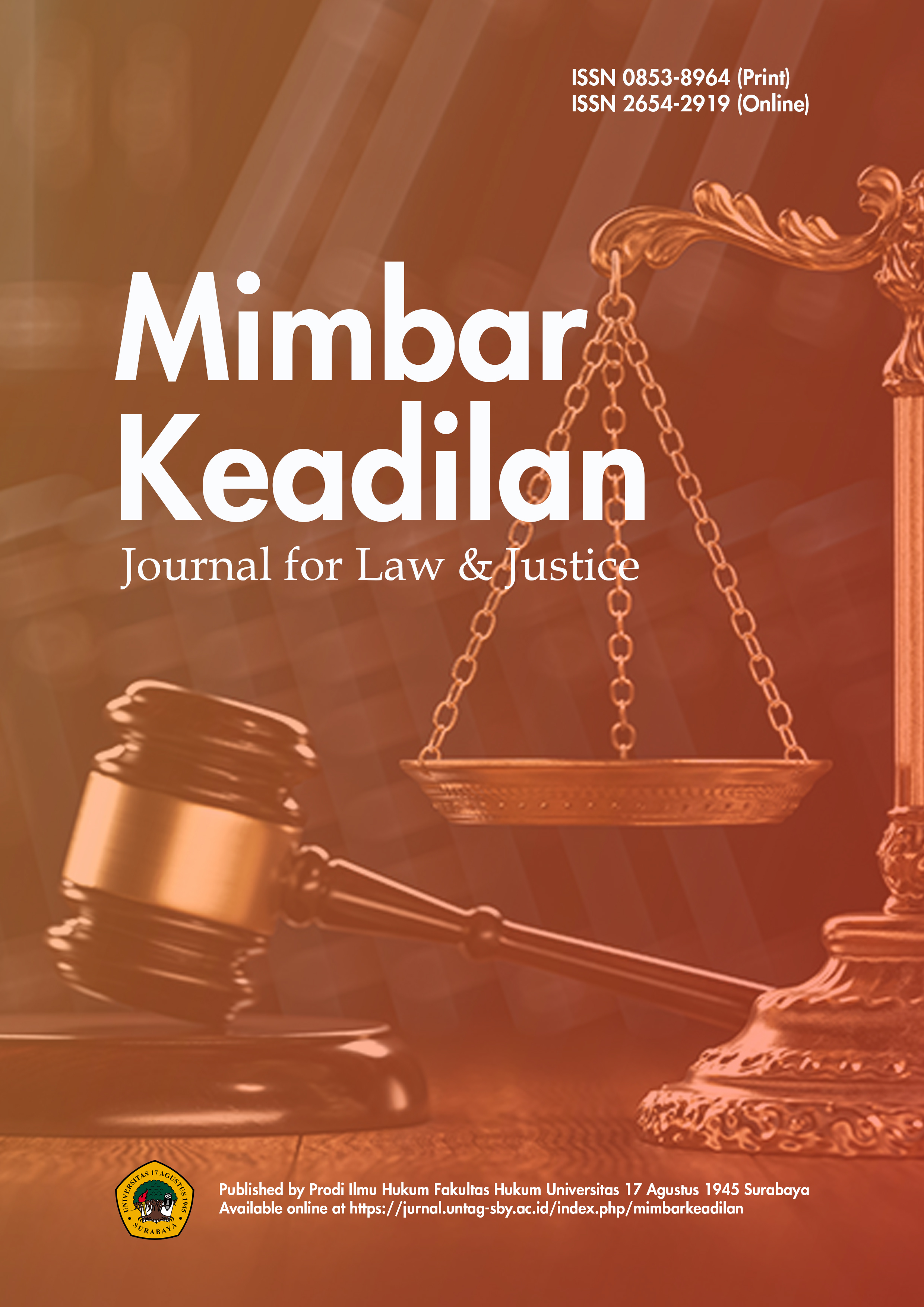Restorative Justice in Narcotics Crimes Investigation: Implementation, Challenges and Obstacles
DOI:
https://doi.org/10.30996/mk.v18i1.11961Keywords:
Restorative Justice, Criminal Offenses, NarcoticsAbstract
This article aims to analyse the application of Restorative Justice in investigating narcotics crimes in the Jambi Police Jurisdiction and the obstacles encountered. The approach of restorative justice in the investigation of narcotics crimes in Indonesia is becoming increasingly popular, specifically in the context of handling addicts and victims of narcotics abuse to restore the conditions before the crime occurred, with a focus on rehabilitation and restoration of the relationship between perpetrators and victims (victimless). As empirical juridical research, this article refers to observing the operation of law in society. The results of this study indicate that the application of restorative justice for narcotic abusers must be carried out by referring to the criteria established in the National Police Regulation (Perkapolri) No. 8 of 2021 at the request of the family concerned, followed by an assessment of the perpetrator. However, there are impediments to implementing Restorative Justice, such as a lack of human resources with specific competencies and qualifications, as well as a lack of facilities for narcotics law enforcement at the Jambi Police Narcotics Unit. Therefore, considering that the application of Restorative Justice is time-limited, intense cooperation is needed for all parties who conduct assessments related to scheduling and human resources so that the application of restorative justice can be carried out in time. Furthermore, the Jambi Police Narcotics Unit's support facilities for law enforcement of narcotics crimes must be enhanced further to facilitate the realization of restorative justice.
Downloads
Downloads
Published
Issue
Section
License
Authors who publish with Mimbar Keadilan agree to the following terms:
- Authors transfer the copyright and grant the journal right of first publication with the work simultaneously licensed under a Creative Commons Attribution-ShareAlike 4.0 International License.. that allows others to share the work with an acknowledgement of the work's authorship and initial publication in this journal.
- Authors are able to enter into separate, additional contractual arrangements for the non-exclusive distribution of the journal's published version of the work (e.g., post it to an institutional repository or publish it in a book), with an acknowledgement of its initial publication in this journal.
- Authors are permitted and encouraged to post their work online (e.g., in institutional repositories or on their website) prior to and during the submission process, as it can lead to productive exchanges, as well as earlier and greater citation of published work (See The Effect of Open Access)














